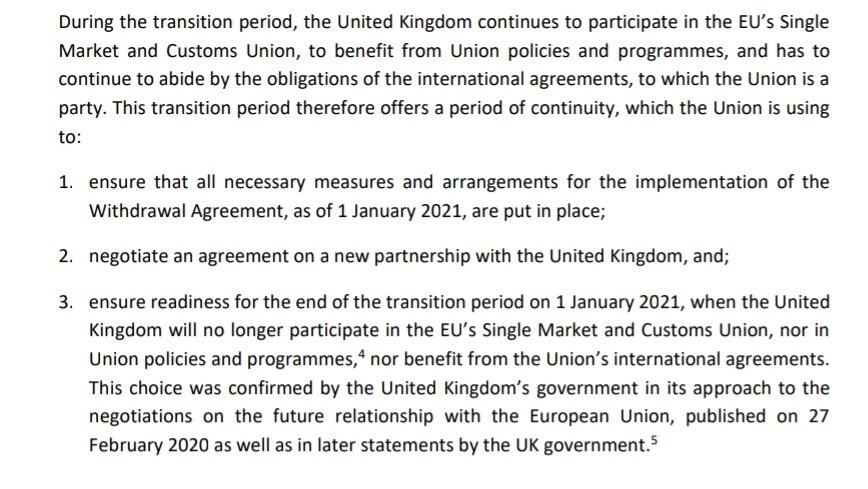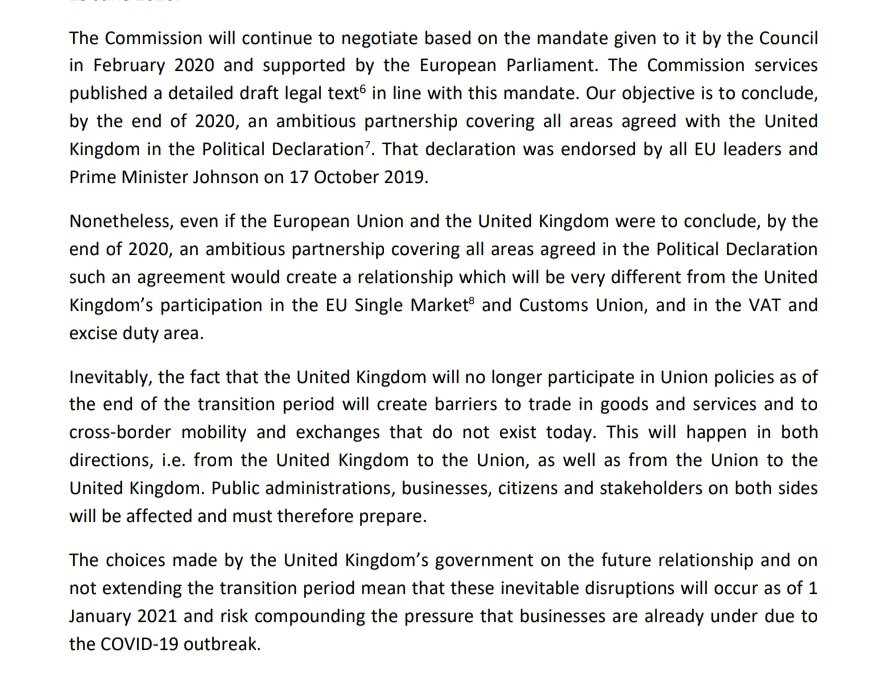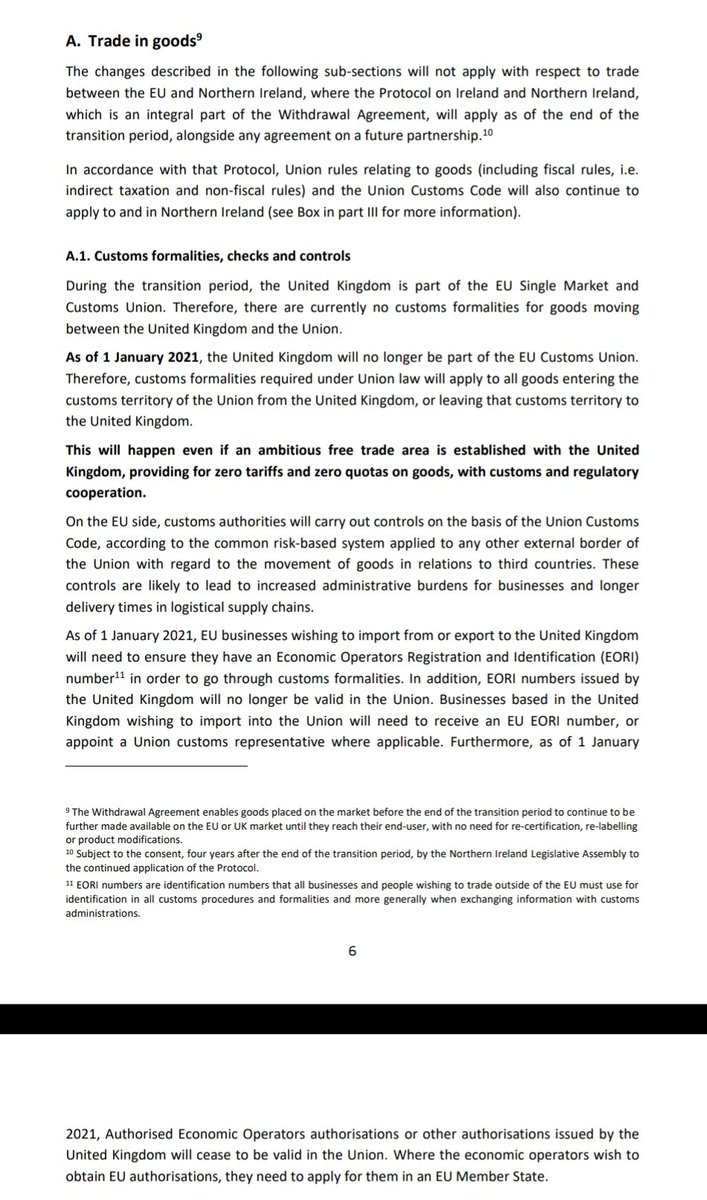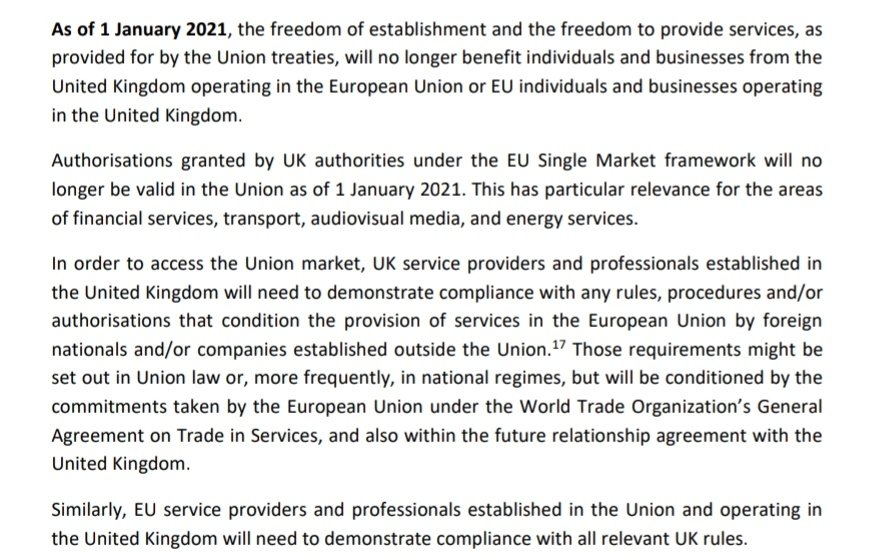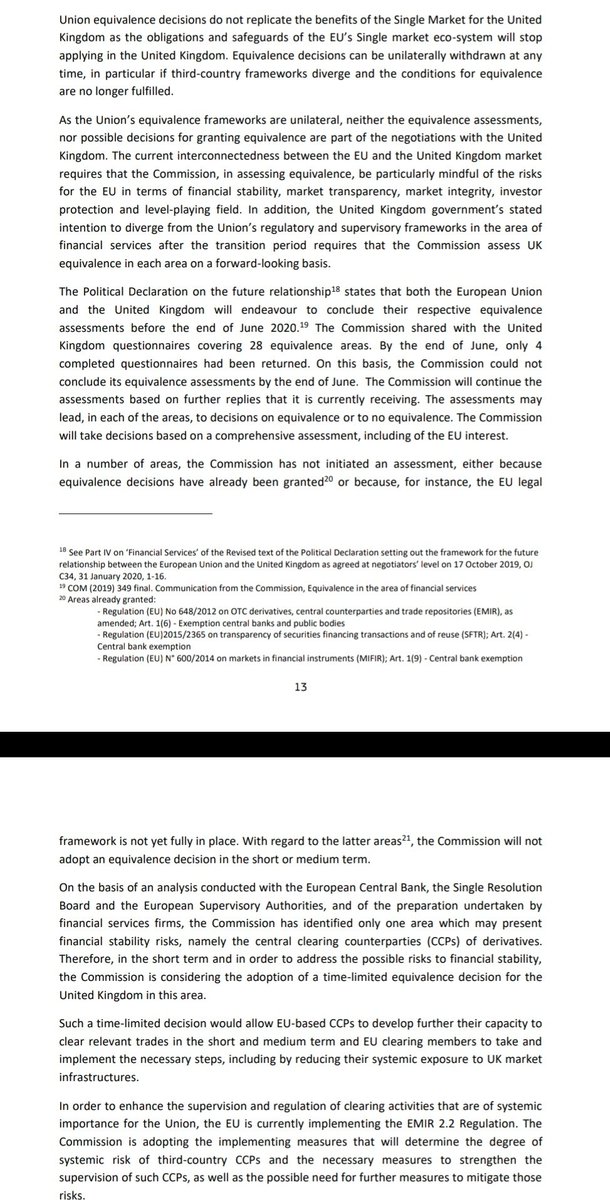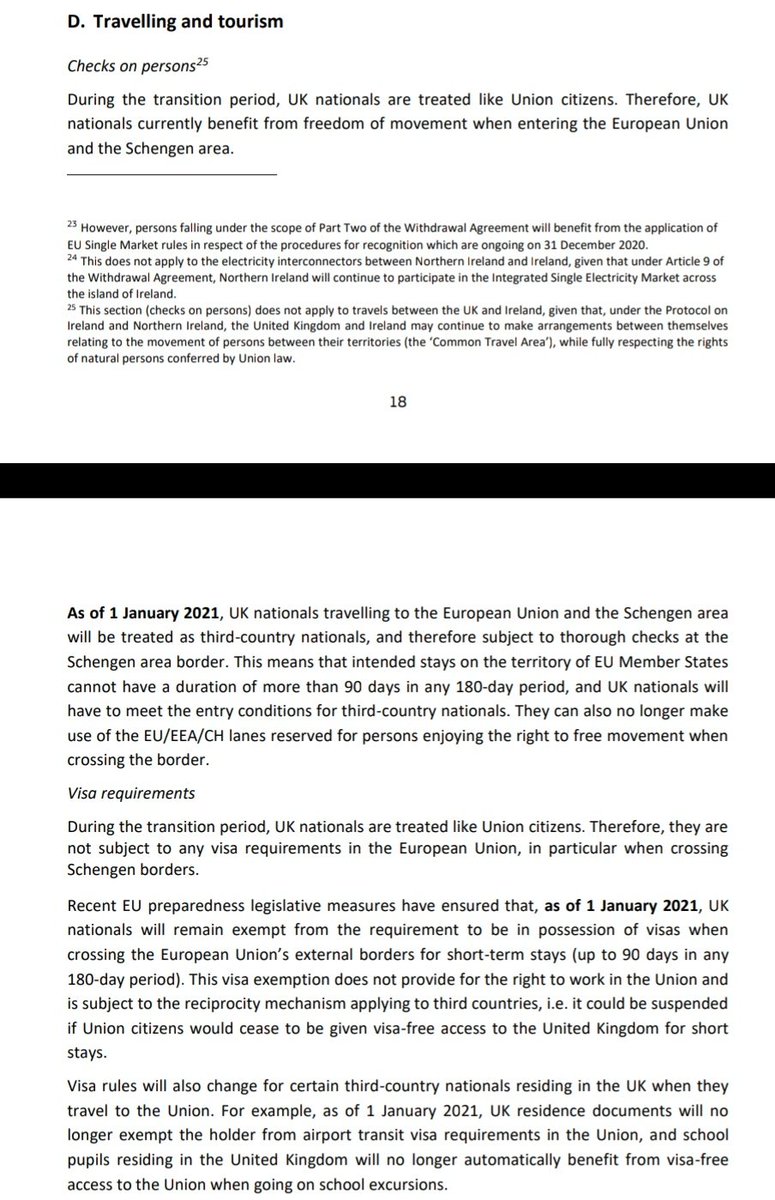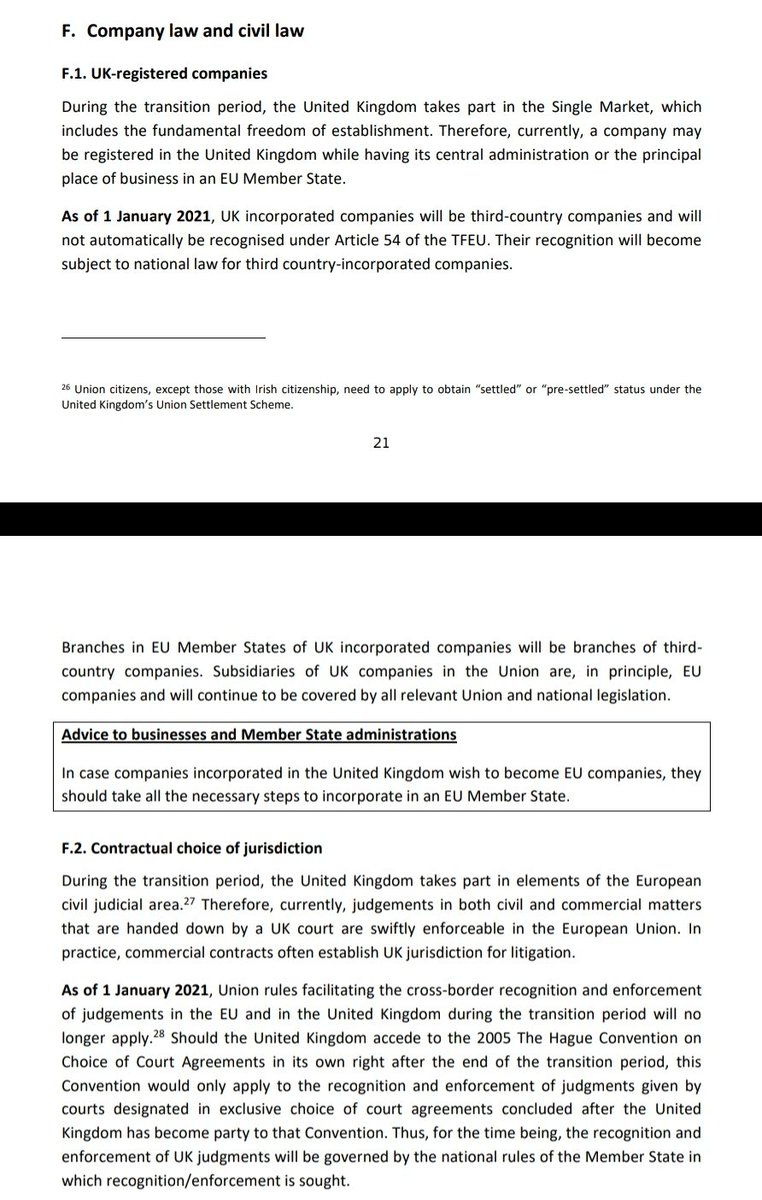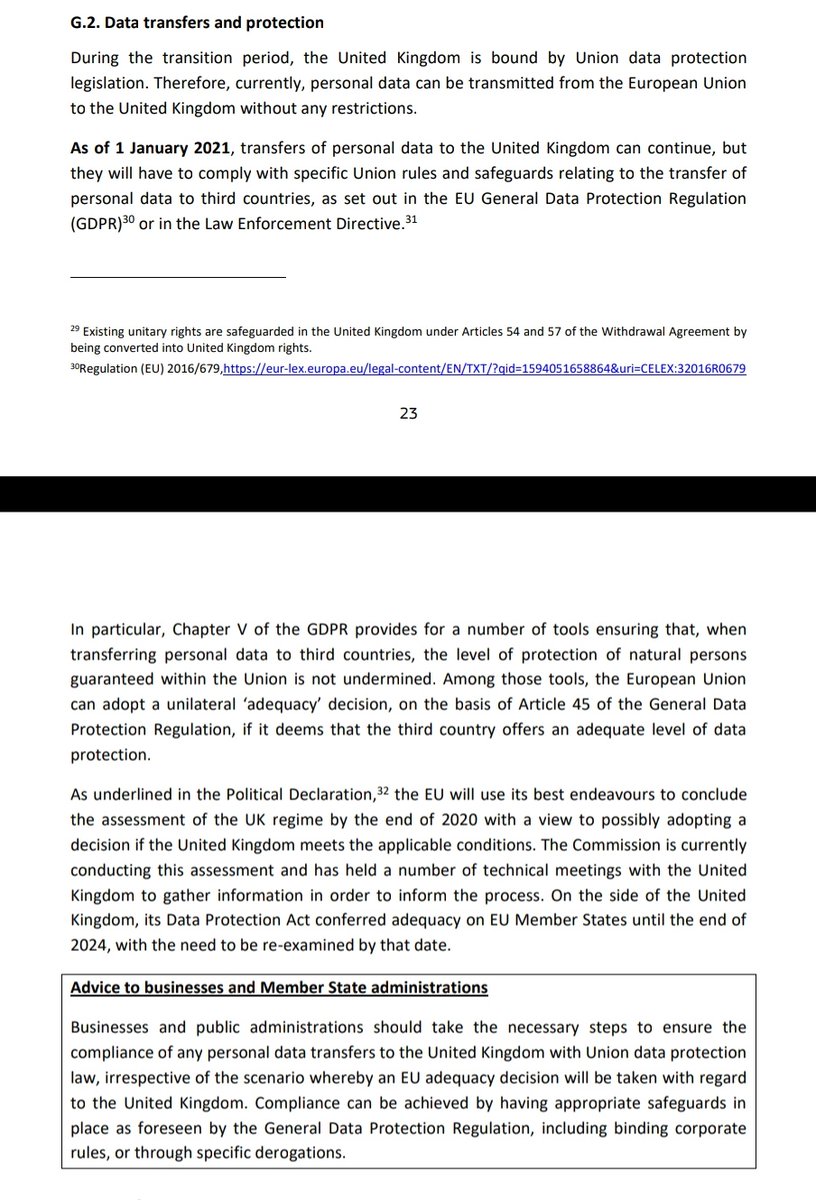1/ The EU Commission has released its paper on preparing for the post Brexit relationship with the UK, after the transition period: https://ec.europa.eu/commission/presscorner/detail/en/ip_20_1304
Summary in this thread
Summary in this thread
2/ The Commission points out several times that the UK government is responsible for its choice to leave the customs union and single market, as well as the refusal to extend the transition period. There's no sign of searching for an alternative way to extend that period.
3/ The paper is not about a "no trade deal" scenario as such, since the relationship between the UK and EU will change significantly even if an FTA is agreed.
4/ Goods: customs checks will apply; the Commission also mentions rules of origin, taxes and certificates. This doesn't apply to Northern Ireland, due to the withdrawal agreement. (There's nothing about implementation of the NI protocol)
5/ Services: in general, the free movement of services ends. UK exports to the EU will have to comply with the requirements of national or EU law. EU exports to the UK will have to comply with UK law.
6/ Financial services: the Commission may adopt equivalence decisions for the UK in certain areas, in particular clearing of derivatives.
7/ Transport: the rules on market access depend upon the outcome of the future relationship negotiations. However licensing rules will change.
8/ Free movement of audiovisual services and recognition of qualifications based on EU law will end (except for those covered by the withdrawal agreement). Nb the UK is aiming to negotiate on the latter issue in the future relationship talks.
9/ Travel: UK citizens will be subject to border checks at the external Schengen border, but the EU has already legislated to exempt UK citizens from a visa requirement for short term visits.
10/ More on the short term visa exemption for UK citizens here: http://eulawanalysis.blogspot.com/2019/04/travelling-to-eu-after-brexit-schengen.html?m=1
UK citizens will eventually need advance travel authorisation, though, as discussed here: http://eulawanalysis.blogspot.com/2018/04/brave-new-world-new-eu-law-on-travel.html?m=1
UK citizens will eventually need advance travel authorisation, though, as discussed here: http://eulawanalysis.blogspot.com/2018/04/brave-new-world-new-eu-law-on-travel.html?m=1
11/ No more mutual recognition of driving licences, although an international treaty may be relevant. No abolition of roaming charges required: it's up to mobile operators. Passenger rights will change in some cases (not further explained).
12/ Certain rights are protected under the withdrawal agreement for those who have moved before the end of the transition period, but otherwise more stringent national and EU law applies to immigration. Social security coordination will be more limited (tho it's being negotiated)
13/ UK firms must comply with national law on incorporation, but benefit from free movement after that. Civil law rules cease to apply (nb the withdrawal agreement has rules on pending cases). No mention of UK seeking to sign the Lugano convention, which covers some of this area.
14/ Data protection: the Commission might adopt an adequacy decision which would simplify personal data transfers.
Nb there's a big CJEU judgment on external data transfer coming next week; background here: http://eulawanalysis.blogspot.com/2019/12/the-ag-opinion-in-schrems-ii-facebook.html?m=1
Other big cases re the UK are also pending.
Nb there's a big CJEU judgment on external data transfer coming next week; background here: http://eulawanalysis.blogspot.com/2019/12/the-ag-opinion-in-schrems-ii-facebook.html?m=1
Other big cases re the UK are also pending.
15/ International treaties: these cease to apply to the UK (except for multilateral treaties like the WTO). Nb the UK has agreed continuity treaties with some of the countries concerned, see this thread by @DavidHenigUK for details: https://twitter.com/DavidHenigUK/status/1280801155027779584?s=19

 Read on Twitter
Read on Twitter